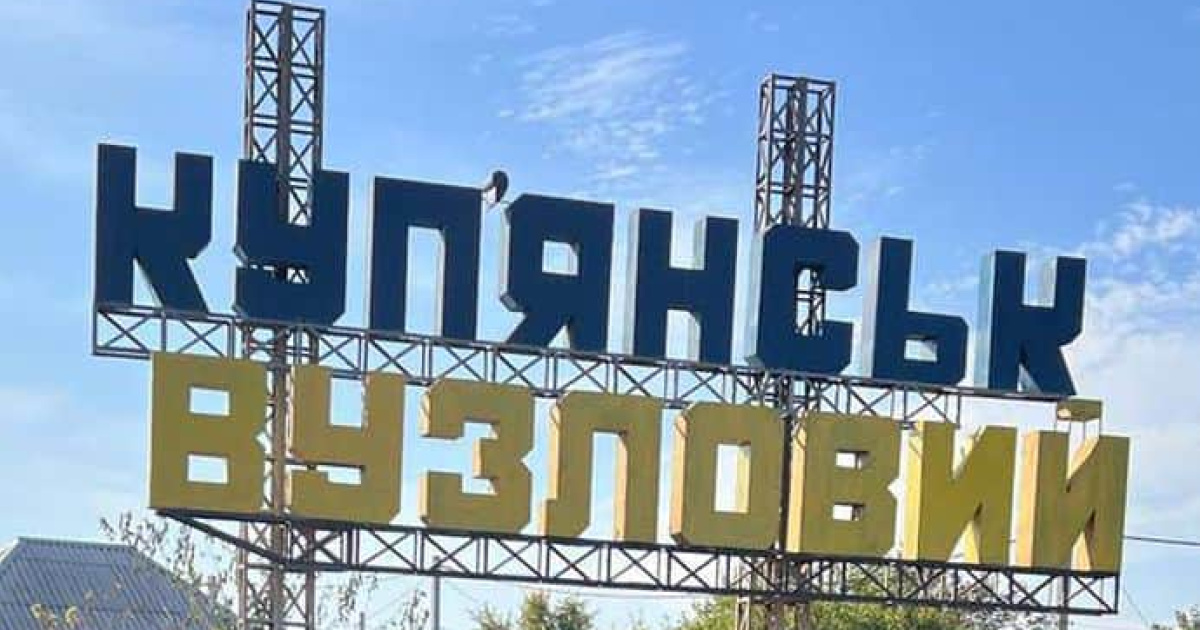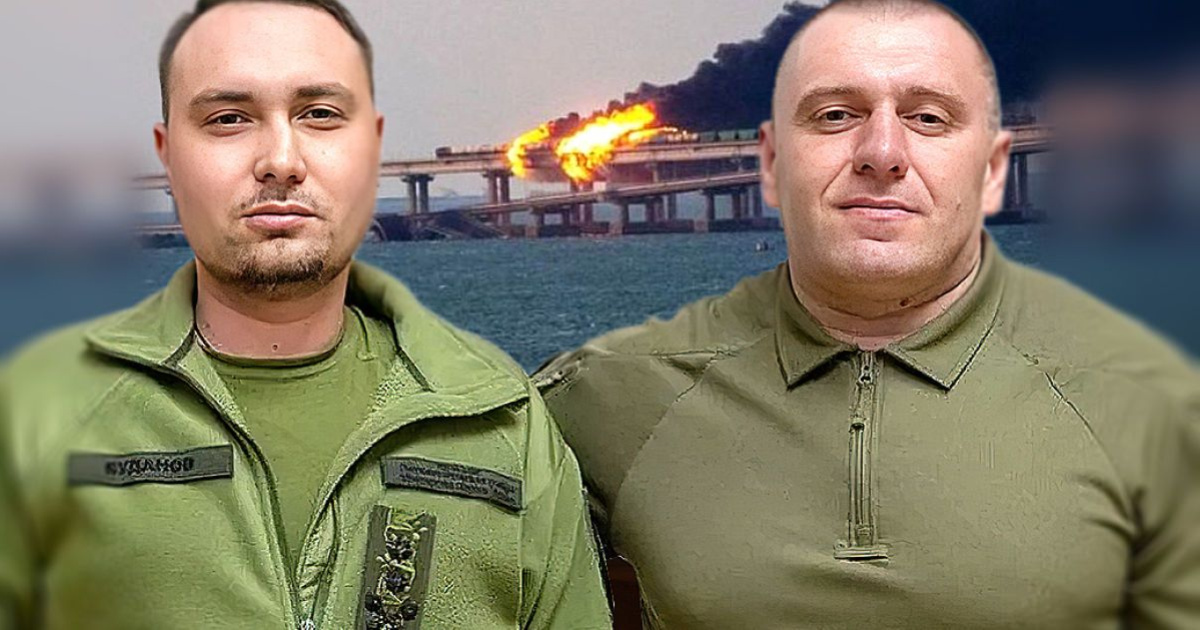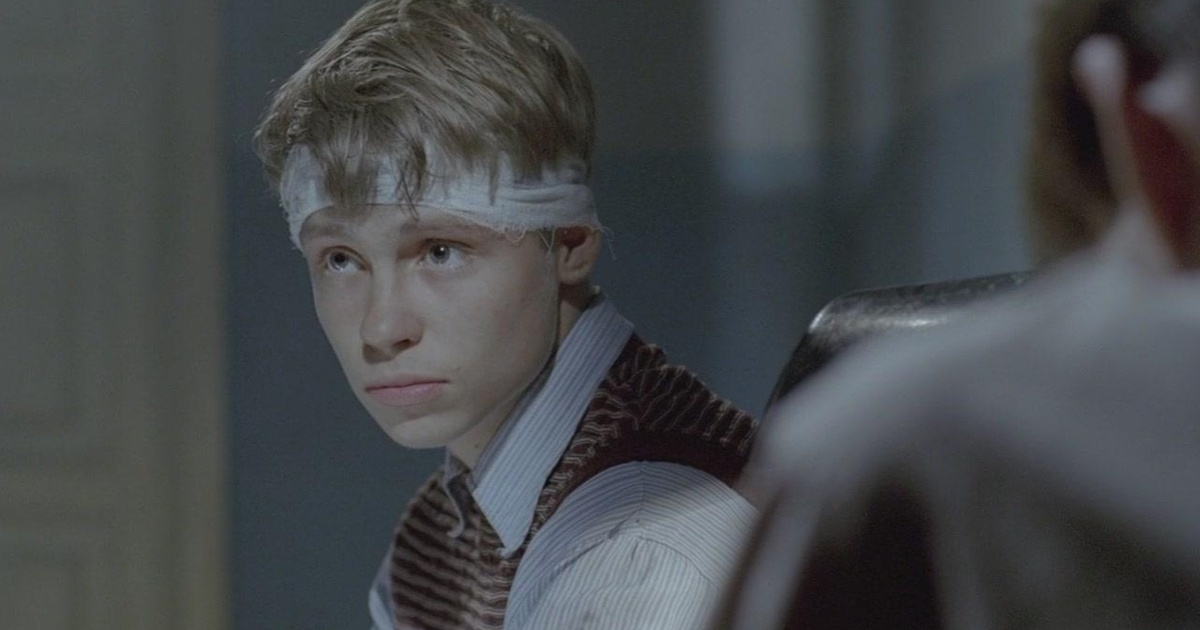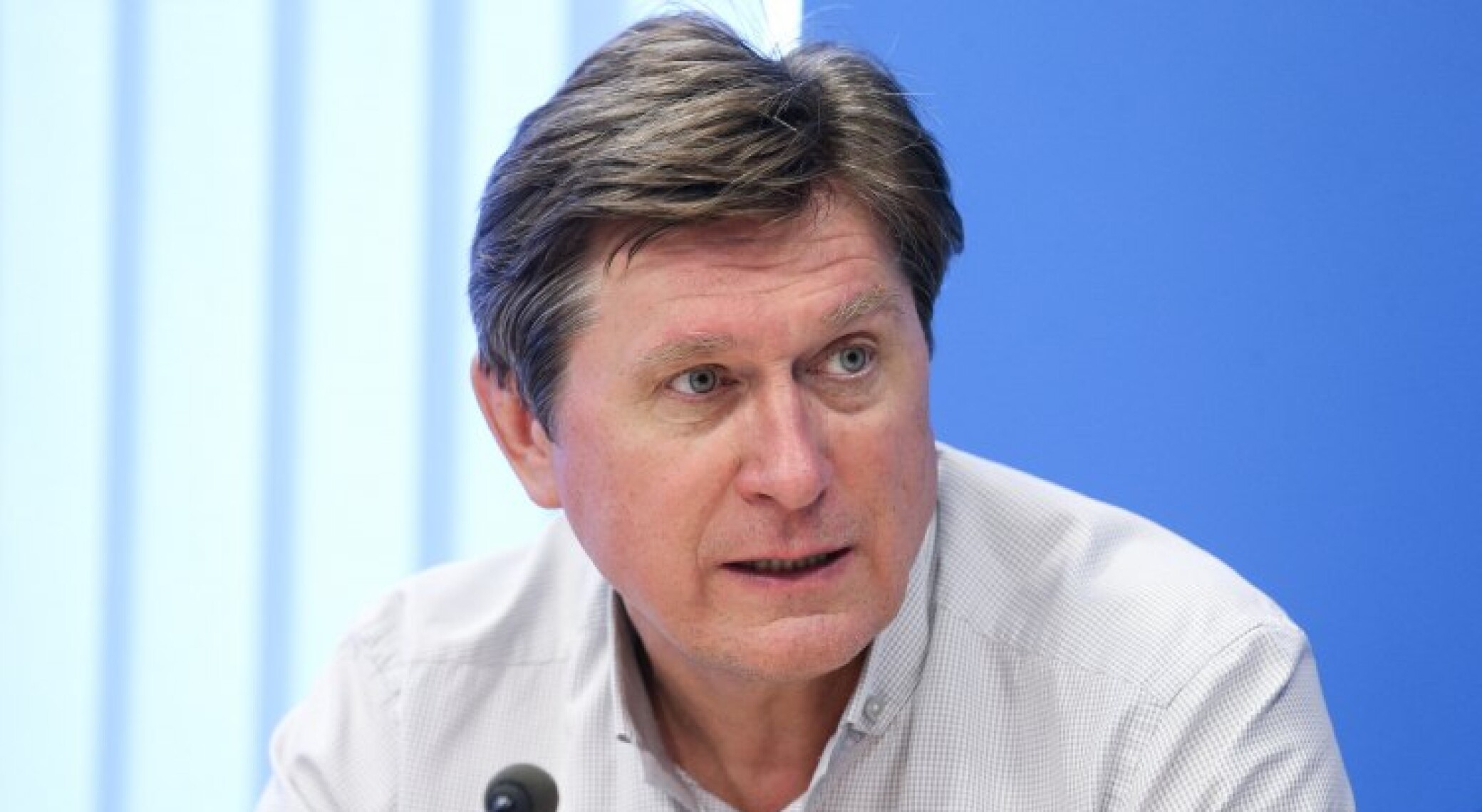Despite attempts by some international players to revive diplomatic initiatives to end the war, the situation on the front remains tense. The russian army continues offensive operations in several directions, maintaining a high level of combat intensity. And the so-called “ceasefires” declared by putin have, in reality, had no impact on the situation at the front line.
At the same time, there is informational pressure coming from the kremlin, which is trying to use the very fact of negotiations as a political tool, without showing any real willingness to end the war.
In an interview with OstroV, military expert and retired colonel of the Armed Forces of Ukraine Serhii Hrabskyi discussed how the war has evolved, what actions can be expected from russia in the near future, whether there are any objective prerequisites for a peace process, and what steps Ukraine must take to withstand a prolonged confrontation.
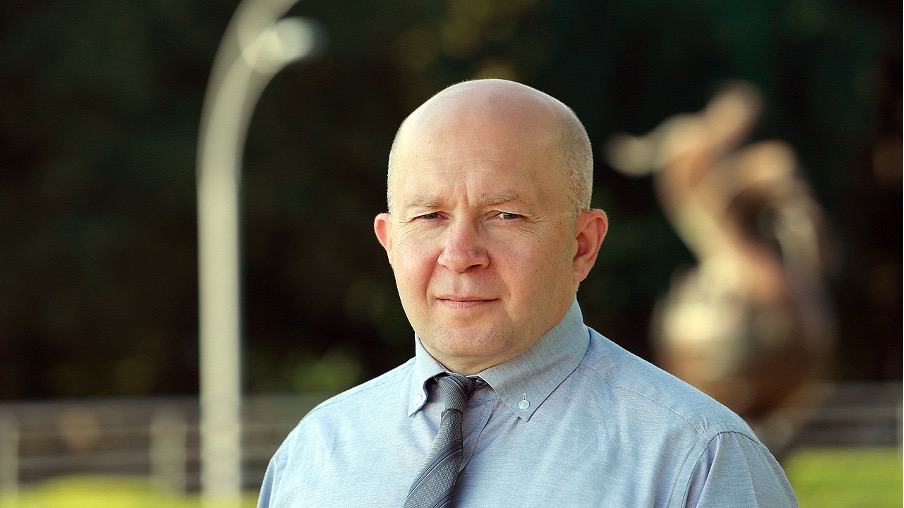
– What conclusions can be drawn after two “putin’s ceasefires”?
– None, because there was no ceasefire at the front as such. These ceasefires existed solely in imagination and in the informational-political sphere. On the front line, nothing changed. From a military point of view — there was nothing, the fighting continued.
– But Ukraine at the very least didn’t launch long-range drones toward russia.
– In this case, we need to separate the front line from the overall strategy. russia also didn’t launch a large number of long-range drones, but that doesn’t affect the situation on the front — these are completely different parameters.
Frankly speaking: I’m irritated by all these completely meaningless, groundless, and unviable conversations about ceasefire and peace. Nothing will come of it. In order to talk about any negotiations or ceasefires, one must rely on real things. And in fact, there is no basis to speak about the realism of any kind of ceasefire.
– So real peace talks are impossible at the moment?
– We must talk about the fact that there are certain grounds for peace negotiations and the start of a peace process. These grounds are axiomatic. We set aside such notions as the desire of individual political leaders to do something. And the grounds are as follows.
First — the inability of the parties in conflict to achieve their military goals through armed struggle. Are we observing that? No, we are not. Russia is trying to advance. Ukraine is defending itself desperately, without losing its strategic or operational position. We have no breakthrough in our defenses: we are achieving our strategic defense goals through different methods.
Second — a sharp deterioration in the internal political, economic, or social situation in the country. Are we observing this in russia or Ukraine? No, not at the moment.
Third — an uncontrollable refugee outflow, when people flee from war, like in Syria. Are we observing this? No, we are not.
– So there are currently no objective reasons for negotiations?
– The question is different: what kind of peace negotiations are we even talking about, if we speak from the standpoint of realism, not the wishes of individual political leaders of respected countries who want to achieve certain results? One may want that, but it’s not enough. The sun rises in the morning, and you, for example, want it to rise in the afternoon. Can you want that? Yes. But in reality it won’t happen, because natural processes exist. The same laws apply in politics and war.
So all this talk about an imminent ceasefire is meaningless. Both putin through his actions and Ukraine through its resistance show that the situation is not yet ripe for any negotiations. Moreover for us, peace negotiations, as practice shows, can be deadly dangerous, because putin uses any pause in the war to his advantage.
For example, this concerns the new sanctions against the russian federation, which were supposed to be introduced back on May 12, but European leaders decided to wait for the talks in Istanbul. And every day without sanctions means billions of dollars flowing into the occupiers’ budget, into the treasury of the kremlin regime. This is an absolutely concrete, real price we all pay for delay. With that money, putin produces weapons, purchases necessary components, and strikes our territory.
– Can anything change the situation?
– Yes, there are a lot of such factors. They can be the result of various events on the front. For example, the troops collapsed, abandoned their positions, and the front suddenly ended up near Dnipro or in the Zaporizhzhia oblast. Or the enemy launched an attack and approached Sumy or Kharkiv. That’s already an operational deterioration, and even then — not a strategic one. Or a situation similar to the Wagner putsch in russia — only more successful, with destabilization in moscow. We can’t predict that. It could even be a cataclysm — an earthquake, a tsunami — anything that paralyzes the state. But there’s one problem: such things are very difficult to predict or foresee, it’s the so-called “black swan”.
– There is an opinion that putin is currently building up forces for a summer campaign, and that this is supposedly his last chance to show something on the front, to achieve something, and then he’ll be ready for real negotiations. Do you agree with that?
– War is a way of existing for putin. At the pace at which he’s currently amassing troops, combat operations are proceeding in a steady mode without any surges. Have you heard of any mobilization announcement in russia? No. Have you heard of serious involvement of any foreign contingents? For example, the arrival of a 100,000-strong North Korean army? No.
That is, the accumulation of resources is happening at the same pace as before. There's no reason to talk about any fundamental change in putin’s concept of warfare. What more can he show? Nothing. What can the russians do? Keep pushing until they think they’ve run out of human and material resources. And that means that the pressure on Ukraine will continue.
There is such a factor as armament. And it is precisely this that currently prevents the enemy from conducting operations on an operational scale — the way it’s outlined in textbooks on operational art. The russians don’t have the resources for that. They could gather another 100–150 thousand people — and then what? Nothing. They’ll just push harder, for example, in the Pokrovsk direction. How will that be any different from what’s happening now?
– But we are also building up our forces, aren’t we?
– Of course. Why does everyone think that only putin is playing this game? War is a game played by at least two. In our case — an entire coalition. Therefore, putin can prove nothing. We can even observe where, how, and when the enemy will be amassing forces and resources. For this, there is strategic, operational, and tactical intelligence.
For putin everything is going normally: he is building up his forces and continuing combat operations. Moreover, war is a way of existence for the kremlin regime. I have repeatedly said: russia now faces a unique situation that has never existed before. The kremlin has obtained an unprecedented level of power over all strata of the so-called "moscovite society". For them, the end of the war means having to take responsibility for social and economic miscalculations. Does putin and his regime need that? No, they do not.
The kremlin exploits society to such an extent that it continues to believe in the rationale of fighting and considers it the only form of state existence. That’s all. Therefore, nothing will change. They remain ready to fight. Unfortunately, in russia, even by opposition estimates, there are at least three million people ready to fight. And that is a resource for continuing combat operations for at least three years.
So, what "last chance for putin" can we speak of in the context of the summer campaign? From this perspective — none at all. Can he influence economic processes? No. Moreover, fortunately for us, he is doing everything possible to worsen these processes. But let’s recall: the USSR withdrew its troops from Afghanistan in 1989 and lasted another two years. That’s the essence. I understand that russia is not the USSR, but they do have a resource base. Moreover, the USSR was in greater isolation than today's russia. Now, it has the opportunity to earn crazy money from oil products — and it is precisely these funds that enable it to wage war and to meet its minimal needs.
– Last week, Financial Times, citing the Main Intelligence Directorate, wrote that russia is seriously preparing for a large-scale offensive this summer. What should we actually expect, and what is behind these intimidations?
– Nothing. We will observe a continuation of the steady tactics we are seeing right now. Russia has intensified pressure on the Donetsk direction, fulfilling the strategic objective that its army received as early as April 2022. That is exactly what we are witnessing now.
Troops are being transferred from the Kursk direction; a classic military operation is underway. And when I say "classic", I mean that the main blow is being delivered along the Pokrovsk–Toretsk line, possibly already — Kostiantynivka and Chasiv Yar. Secondary strikes are being carried out in the Lyman direction, with a similar secondary strike in the Kupiansk direction. A series of diversionary, demonstrative actions in other sections of the front and the maintenance of a low-intensity conflict level in the southern direction — that is what is happening right now.
– So this is the russians’ plan for the near future?
– They have nothing else. A full-scale offensive can’t just suddenly appear. They already tried such actions in the Kharkiv direction, attempted to attack us and were stopped still in the support zone. They didn’t advance more than 10 kilometers from the frontline, even though the grouping there was significant. This isn’t the kind of war where such things are possible. Today’s war has a completely different character: prolonged battles, attrition of resources and logistics, hunting down every piece of equipment, every single soldier.
These attacks that russia is conducting now are essentially acts of desperation. It’s an attempt to act by all possible means, including so-called "psychological attacks". But that’s it. They’ve got nothing else.
– Can we talk about some new tactic by russia in the Sumy direction?
– Absolutely not. We’re not observing any new tactics there. There’s a task being carried out by both sides of the conflict — the creation of a so-called buffer zone. This concerns both the Sumy oblast and the Kursk and Belgorod oblasts of the russian federation. Nothing significant is happening. The task of the Ukrainian and russian forces is to create a "buffer zone".
And no one should expect a bunch of troops to suddenly appear out of nowhere and move toward the front line. This isn’t a computer game. Tank columns aren’t going to roll out — we don’t see them. And if we don’t see them today, May 17, then where would they appear from on June 17? Russia was assembling a 200,000-strong grouping to attack Ukraine starting from March 2021 (11 months). And that was in conditions where nothing was stopping them. Today, those conditions don’t exist. Tell me, please, if the current trend holds, how long will it take them to gather 200,000? It’s hard to imagine. And considering the pace of losses, it’s not even clear what we could be talking about.
I’ll repeat: russia is capable of replenishing its armed forces at a level of 30-35 thousand people per month, and their losses reach up to 40 thousand. So all of these actions — they’re just covering the current shortage of personnel.
– Against this backdrop, is Ukraine capable of any active asymmetric actions to turn the tide?
– Ukraine must be capable of total mobilization of the entire society. The foundation of any army is people. And society must understand: we have no other option but total mobilization. This doesn’t mean taking children from nurseries and sending them to the front. That’s a primitive distortion. But it does mean that a unified mindset must form in society — one focused on survival and total resistance. Everyone must do their job in their place.
That’s the essence of the asymmetry in our actions: using the forces and means that allow us to strike effectively, employing all available resources. It’s nonsense to think we can just bombard the russians. We simply don’t have the bombs. And it’s also untrue that we can win the war solely through strikes on enemy rear targets.
This has to be a prolonged war of attrition, where we stand and grind down the enemy’s forces. Because it’s during the offensive that the enemy suffers greater losses than we do in defense. And we must make those losses even greater — unbearable for russia. That is the only path to victory.
– You’re talking about total mobilization. So we haven’t even started it yet?
– No. We haven’t even come close. What’s happening now, what causes hysteria in certain immature segments of society — this is not mobilization. This is a sluggish attempt to partially reinforce our forces. That’s all.
Moreover, there is practically no systematic informational work being done in society. And it’s absolutely essential. We need to educate a new generation. Because, whether we like it or not, everyone will have to fight. We live in the conditions of a "Greater Israel". We simply have no other options. There’s no point in hoping someone will do the work for us. No one will.
Right now, we have a unique historical chance: Europe — whether it wants to or not — is looking us in the eye, begging us to hold on and win. And it really is doing everything it can. To miss such a moment would be a crime. We are obligated to use all available material, economic, scientific, and intellectual resources of Europe and the United States. I hope they realize the real threat and reconsider their actions. But most importantly, we ourselves must do everything to hold out and win.
By Vladyslav Bulatchik, OstroV

